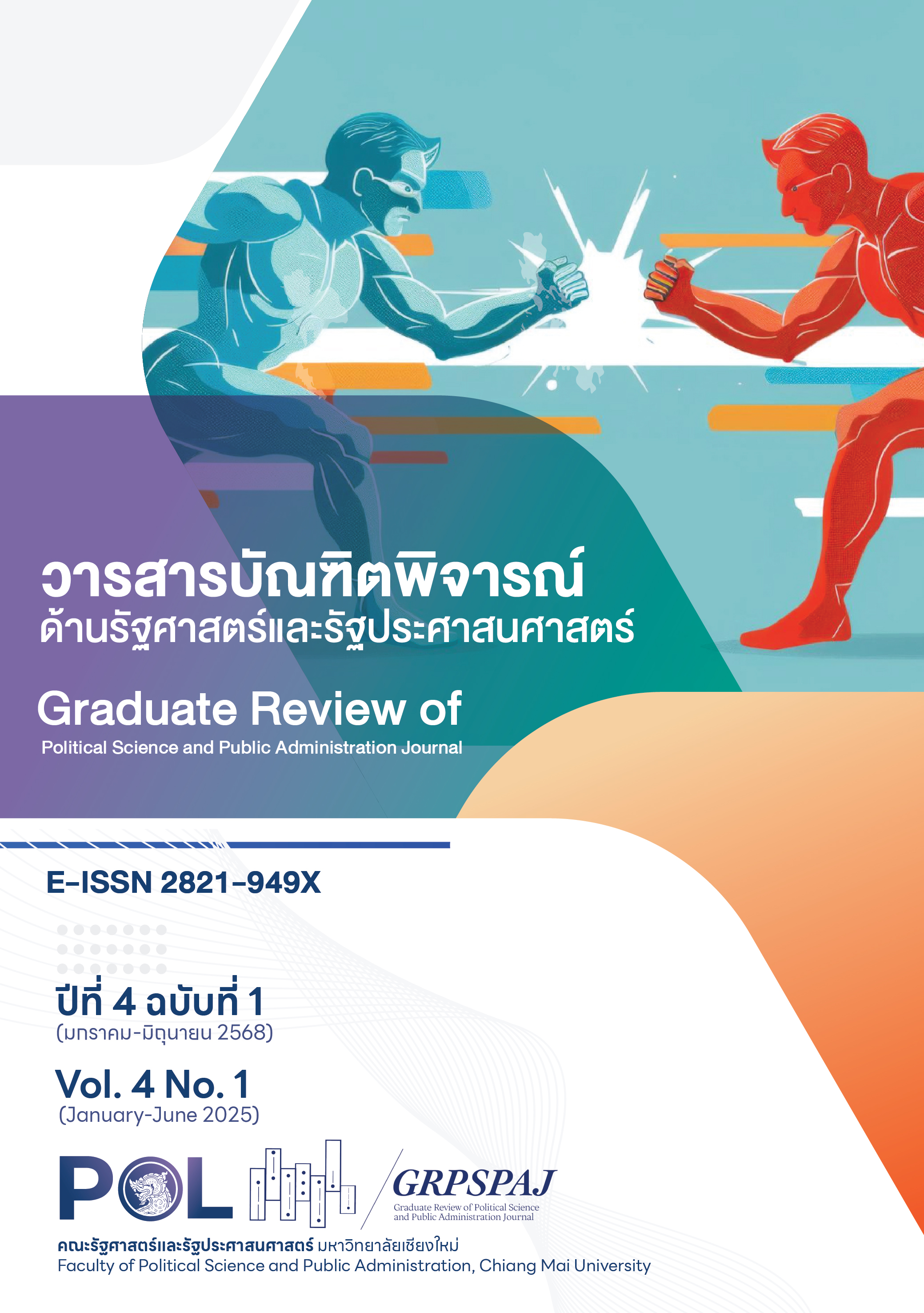Animal Farm (1954) and the Failure of the Revolution
Main Article Content
Abstract
Animal Farm (1954) is a British-American animated film, adapted from George Orwell's novel of the same name. The summary of the film is about farm animals, revolting and driving out the cruel farm owner, then creating a new society where all animals are equal, free, and happy before being transformed into a totalitarian state led by the pig named Napoleon, who made the farm’s conditions just as bad as or perhaps even worse than those before the revolution. The purpose of this review article was to analyze the film, based on Marxist and Neo-Marxist theories, to find out why the revolution did not contribute to change for the better. The results of the analysis revealed that from the reasons within the film, the revolution failed to bring changes because of the undemocratic governance, propaganda, and a lack of attention from civil society in political participation. It therefore facilitated the tie of power to the leader and caused the revolution not to bring about the change as it should be.
Article Details

This work is licensed under a Creative Commons Attribution-NonCommercial-NoDerivatives 4.0 International License.
Graduate Review of Political Science and Public Administration Journal is licensed under a Creative Commons Attribution-NonCommercial-NoDerivatives 4.0 International (CC BY-NC-ND 4.0) licence, unless otherwise stated. Please read our Policies page for more information...
References
กาญจนา แก้วเทพ, และสมสุข หินวิมาน. (2560). สายธารแห่งนักคิดทฤษฎีเศรษฐศาสตร์การเมืองกับสื่อสารศึกษา. ภาควิชาวรรณคดี คณะมนุษยศาสตร์ มหาวิทยาลัยเกษตรศาสตร์.
ฉัตรทิพย์ นาถสุภา. (2557). ลัทธิเศรษฐกิจการเมือง (พิมพ์ครั้งที่ 10). สำนักพิมพ์แห่งจุฬาลงกรณ์มหาวิทยาลัย.
ยอร์ช ออร์เวล. (2517). การเมืองของสัตว์. กรุงสยามการพิมพ์.
วัชรพล พุทธรักษา. (2557). บทสำรวจความคิดทางการเมืองของ อันโตนิโอ กรัมชี่. สำนักพิมพ์สมมติ.
วิทยากร เชียงกูล. (2558). เศรษฐศาสตร์การเมืองแบบมาร์กซ์. ใน วันเพ็ญ คงมั่น (บ.ก.).
ทำไมควรอ่าน คาร์ล มาร์กซ์. (น. 61-116). สำนักพิมพ์แสงดาว.
Duignan, B. (n.d.). Consumerism. Britannica Money. https://www.britannica.com/money/consumerism
Halas, J. (Producer, Director), & Batchelor, J. (Producer, Director). (1954). Animal Farm [Film]. Halas and Batchelor.
Haynes, J., Hough, P., Malik, S., & Pettiford, L. (2017). Marxism and Neo-Marxism. In Aguilera, N. (Ed.). World Politics (2nd ed.) (pp. 121-135). Sage Publications.
Lansford, T. (2008). Communism. Marshall Cavendish.
Mandel, E. (1977). From Class Society to Communism: An Introduction to Marxism. Inklinks Ltd.
Meija, J. (2002), Animal Farm: A Beast Fable for Our Beastly Times. Literary Kicks. https://litkicks.com/animalfarm/
Ritzer, G., & Schubert, J. D. (1991). The Changing Nature of Neo-Marxist Theory: A Metatheoretical Analysis. Sociological Perspectives, 34(3), 359-375. https://www.jstor.org/stable/1389516?seq=1
Rodden, J. (1991). Reputation, Canon-Formation, Pedagogy: George Orwell in the Classroom. College English, 53(5), 505. https://www.jstor.org/stable/377460
Senn, S. (2015). All Propaganda is Dangerous, but Some Are More Dangerous than Others: George Orwell and the Use of Literature as Propaganda. Journal of Strategic Security, 8(5), 151. https://digitalcommons.usf.edu/cgi/viewcontent.cgi?article=1483&context=jss
The Economic Times. (n.d.). What is 'Marxism'. The Economic Times. https://economictimes.indiatimes.com/definition/marxism


